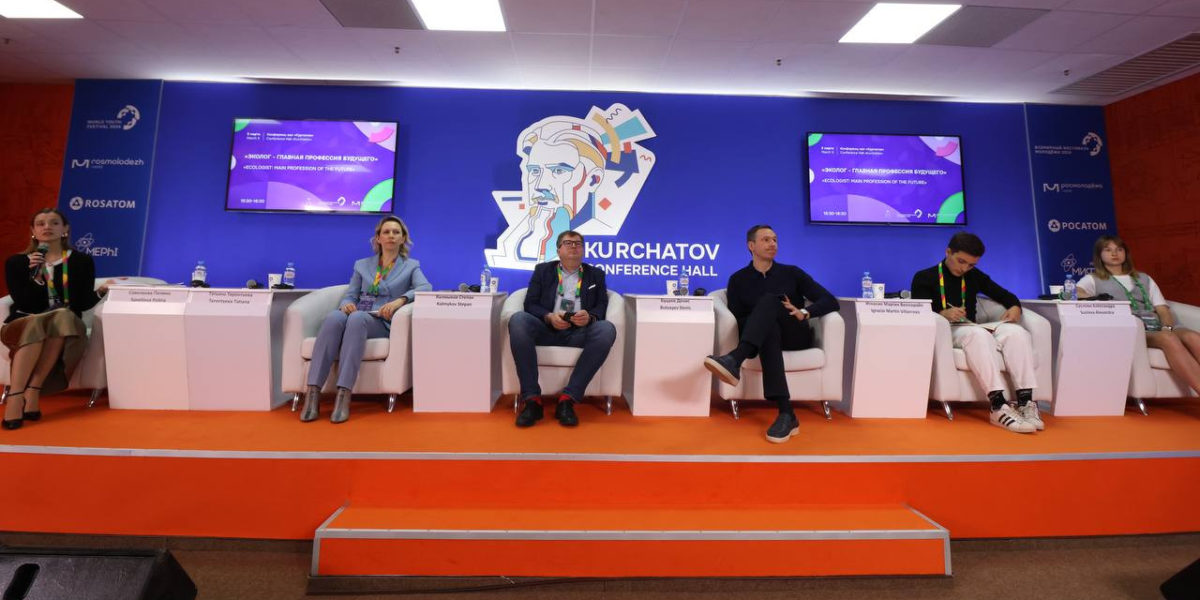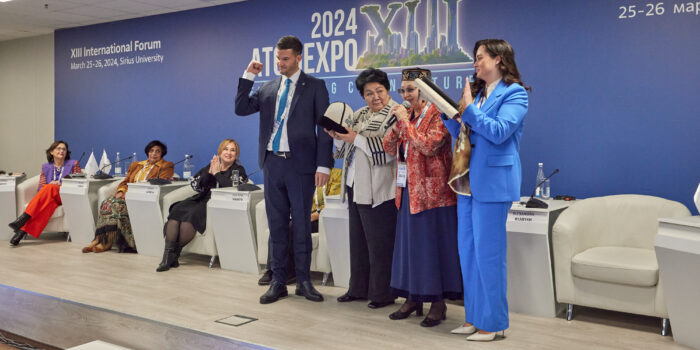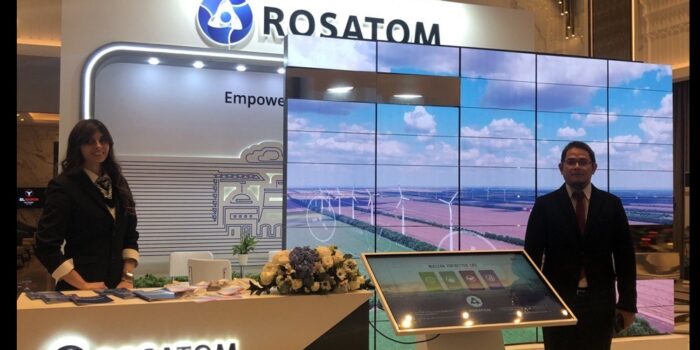As part of the World Youth Festival, the session “Ecologist is the Key Profession of the Future” was held. It was attended by Tatiana Terentieva, Deputy CEO for HR, Rosatom, Denis Butsaev, CEO of PNPC REO, Stepan Kalmykov, a Russian radiochemist, Doctor of Chemical Sciences, Academician of the Russian Academy of Sciences, and students, including a member of the International Youth Advisory Council under the CEO of Rosatom – Impact Team 2050.
The participants discussed which ecology experts will be in demand in the near future in the labor market, whether the education system is ready for this, noted on the eco agenda the topics that concern young people – college and university students, young professionals – today.
In her speech, Tatiana Terentieva presented the results of the study “The needs of Russian business in environmental specialists in the near and medium term. The readiness of Russia’s educational market”, held by Rosatom in September 2023. According to the study results, there are enough educational programs in Russia today aimed at developing the necessary environmental competencies. Among the specialties that are covered by the modern education system in one way or another are a specialist in waste and secondary resources management, a consultant on separate waste collection, a specialist in organizing closed resource circulation cycles, an expert in environmental data analytics, a specialist in natural ecosystem management, and others. Among the fields of specialization that are not allocated to separate disciplines in educational programs are a specialist in issues of interaction with government agencies in the field of sustainable development and ecology, a specialist in climate risk management in a company, an ecosystem planning specialist, an eco-coach, an eco-cyberneticist, and others. The speaker also identified the environmental areas, where business feels a particularly acute deficit of personnel. The top 5 include environmental monitoring, environmental safety, compliance with environmental legislation, preparation and collection of environmental data, as well as sustainable development of the territories of presence. Based on the results of the study, it was proposed to train specialists with highly specialized competencies, as well as integral specialists who can take into account the general environmental situation, strengthen cooperation with educational institutions and involve young people in the development of educational activities.
Tatiana Terentieva also noted the importance of environmental training and education in general. “The environmental agenda is one of the few aspects that concerns everyone, she stressed. – Therefore, ecothinking is a basic skill of a modern person, its solid foundation formed by environmental training and education. This is what Rosatom pays great attention to within the ecosystem of human resources development, by opening ‘Mendeleev classes’, systematically working in the field of industrial ecology with schoolchildren, students and graduates of universities. Besides, within the People and Cities program, we are building infrastructure that helps strengthen environmental habits, holding theme-based events, family activity days, and various campaigns. As a result, the level of ecological culture in our cities is twice as high as Russia’s average. We are ready to openly share our experience and learn from the experience of our foreign partners, as it is only in joint systematic work that we can achieve all our goals.”
Reference
The World Youth Festival is held in accordance with the decree of Russian President Vladimir Putin in order to develop international youth cooperation. It will be attended by 20,000 young leaders in education, science, international cooperation, culture, volunteerism and charity, sports, business, and media, including 10,000 foreign participants. Teenagers will also be able to take part in the festival for the first time (as part of the track of the all-Russian movement of children and youth – “Movement of the First”).
Rosatom is a multi-industry holding company which comprises assets in power engineering, machine building, and construction. Its strategy is to develop low-carbon generation, including wind power. Rosatom is the national leader in power generation (accounting for about 20% of the country’s total output) and ranks first globally in terms of the size of its portfolio of orders for the construction of nuclear power plants: 33 power units in 10 countries are at different stages of implementation.
One of the priorities of the President of the Russian Federation and relevant agencies is to improve the efficiency of natural resource management. Major Russian companies pay great attention to the implementation of projects in the field of rational environmental management. Rosatom generating electricity using low-carbon generation is consistently implementing the steps for transition to a green economy. The atomic scientists are engaged in modernization of equipment, which provides generation of environmentally clean energy, with hundreds of millions of rubles allocated annually to environmental protection measures.





